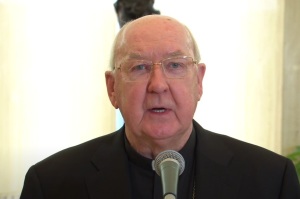N.C. 'Choose Life' License Plates Face Lawsuit Over Free Speech Issues
“Choose Life” specialty license plates approved for sale in the state of North Carolina are being met with challenges, as some citizens say the plates limit freedom of speech because no alternative message exists.
Citing violation of the First and 14th Amendment, the American Civil Liberties Union filed a lawsuit asking the state to stop the sale of pro-life license plates, which the union says express a one-sided view in the abortion debate.
Because the option of pro-choice license plates has been repeatedly rejected in North Carolina, the ACLU accused the state of opening up a “forum for private speech to only one viewpoint in the public debate over abortion,” the lawsuit claims.
Speaking on behalf of 6,800 ACLU members and a few named citizens, the organization claimed that the plaintiffs “suffered discriminatory treatment as a result of the State’s use of the license plate forum to promote one political viewpoint.”
“This is a basic issue of freedom of speech and fairness,” said Katherine Lewis Parker, legal director of the ACLU North Carolina Legal Foundation.
“It is a fundamental tenet of the First Amendment that the State cannot use its authority to promote one side of a debate while denying the same opportunity to the other side.”
But Barbara Holt, president of the North Carolina Right to Life, told LifeNews.com that if the ACLU found the plates unfair, the union should work to get their own plate accepted by the state.
“Pro-life groups worked for years to get a ‘Choose Life’ specialty plate through the General Assembly. There is nothing to prevent the individuals who are suing the state from putting forward the same effort to get a plate of their own.”
In its defense, the ACLU cited efforts of several representatives who had worked to get the state to adopt a pro-choice plate bearing a “Respect Choice” message. There have been efforts to adopt the plates since Gov. Beverly Perdue signed House Bill 289, allowing the DMV to issue various specialty plates, the ACLU said.
“Six times a vote was held on whether to include a pro-choice plate, and six times such a plate was roundly rejected by the North Carolina General Assembly,” the ACLU noted in the lawsuit
Legislators themselves have also acknowledged that only issuing a pro-life plate would violate free speech, the ACLU said.
“Rep. Deborah Ross said: ‘I would caution members who don’t like this amendment [adding the ‘Respect Choice’ plate] that if you choose one point of view and don’t choose the other point of view you’re not neutral... when you open the forum you cannot pick one point of view over another point of view,’” the suit says.
Plaintiffs are seeking a declaratory judgment that the “Choose Life” plates are unconstitutional and are also asking for permanent injunctive relief.
“I don’t think they will be successful,” Republican state legislator Mitch Gillespie told Raleigh News & Observer. Gillespie sponsored the bill to establish the “Choose Life” plates in North Carolina.
The plates help fund the Carolina Pregnancy Care Fellowship (CPCF), a private organization that supports crisis pregnancy centers in the state. Of the $25 plates, $15 from the purchase goes to the organization, which expressly forbids directing any funds toward abortion agencies or businesses.
“The ‘Choose Life’ license plates [have] already raised over 12 million dollars in the states that allow them, thereby helping mothers and their families,” Bobbie Meyer, the state director of the CPCF told LifeNews.
As of June, more than 667,356 “Choose Life” plates have been sold or renewed in the 24 states that have allowed the plate to be purchased. According to the most recent reports, the “Choose Life” plates have surpassed the $14 million mark in sales.
Marion County Commissioner Randy Harris first initiated the “Choose Life” specialty license plate in 1996. He founded Choose Life, Inc., in 1997 in Florida. The state was the first to approve the plates, after much legislative persistence.
Harris began the organization with the idea to use license plate sales to help fund efforts for prenatal care for women considering adoption services and to help pro-life pregnancy centers and other life-affirming agencies provide services to women in need, according to the Choose Life website.





























